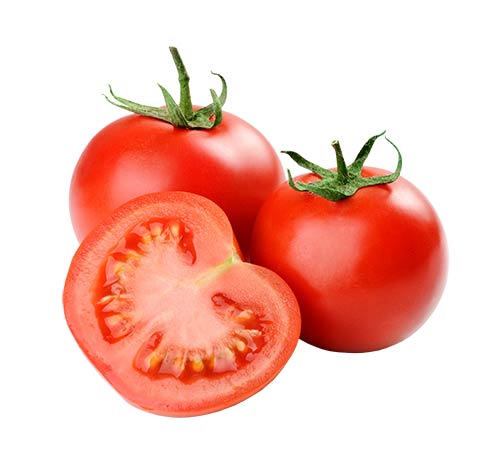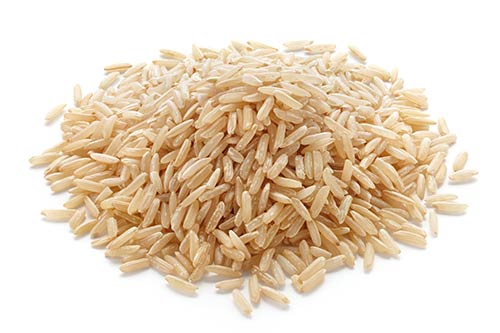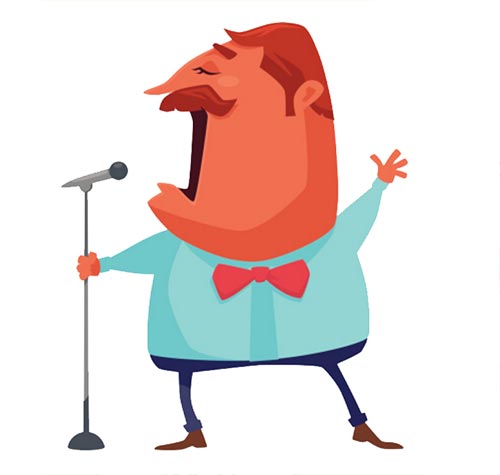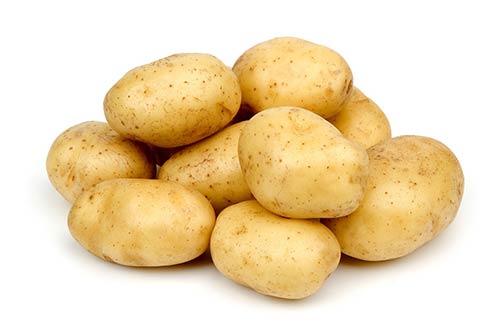heart
Used to refer to a person's character, or the place within a person where feelings or emotions are considered to come from
قلب
I love you, and I mean it from the bottom of my heart
the part of you that feels strong emotions and feelings
دل، قلب
The doctor had an extremely kind heart.
دکتر قلب بسیار مهربانی داشت.
Oxford Essential Dictionary
heart
noun
pronunciation
The word heart sounds like start.
1 the part of the body that makes the blood go round inside:
Your heart beats faster when you run.
2 your feelings:
She has a kind heart (= she is kind).
3 the centre; the middle part:
They live in the heart of the countryside.
4 the shape (below)
5 hearts (plural) the group of playing cards (called a suit) that have red shapes like hearts on them:
the six of hearts
break somebody's heart to make somebody very sad:
It broke his heart when his wife died.
by heart so that you know every word:
I have learned the poem by heart.
lose heart to stop hoping:
Don't lose heart – you can still win if you try.
your heart sinks you suddenly feel unhappy:
My heart sank when I saw the first question on the exam paper.
Longman Dictionary of Contemporary English
heart
heart S1 W1 /hɑːt $ hɑːrt/ BrE AmE noun
[Word Family: adjective: heartened ≠ disheartened, heartening ≠ disheartening, heartless, hearty; noun: heart, heartlessness, heartiness; adverb: heartily, heartlessly, hearteningly ≠ dishearteningly; verb: hearten ≠ dishearten]
[Language: Old English; Origin: heorte]
1. BODY ORGAN [countable] the organ in your chest which pumps blood through your body:
Regular exercise is good for the heart.
Can you hear my heart beating?
Her cheeks were hot and her heart was pounding.
My heart raced. Were we going to land safely?
Daniel had no history of heart problems.
She suffers from a rare heart condition.
His breathing and heart rate were now normal.
2. EMOTIONS/LOVE [countable] the part of you that feels strong emotions and feelings:
His heart was full of anger and grief.
The plight of the refugees had tugged at the nation’s heart.
The doctor had an extremely kind heart.
She could hardly speak for the ache in her heart.
It would break Kate’s heart (=make her extremely sad) to leave the lovely old house.
He left the country with a heavy heart (=great sadness).
Edith loved her boy with all her heart and soul.
I was still pretty innocent then when it came to affairs of the heart (=matters relating to love and sex).
a woman with a heart of gold (=very kind character)
Sometimes I think he’s got a heart of stone (=very cruel character).
I’m glad I followed my heart rather than my head for once.
My father told me never to let my heart rule my head.
kind-hearted/cold-hearted/hard-hearted etc (=having a kind, unkind, cruel etc character)
He thinks of himself as a warm-hearted and caring human being.
3. YOUR CHEST [countable usually singular] the part of your chest near your heart:
He put his hand on his heart.
4. SHAPE [countable] a shape used to represent a heart
5. from the (bottom of your) heart with great sincerity and strength of feeling:
Leonard spoke from the heart.
I want to thank you from the bottom of my heart.
She sang the songs straight from the heart.
6. in your heart (of hearts) if you know, feel, or believe something in your heart, you are secretly sure about it although you may not admit it:
In her heart she knew she would never go.
Deep in his heart, he wanted Laura back.
7. IMPORTANT PART OF SOMETHING [singular] the most important or central part of a problem, question etc
the heart of something
difficult issues at the heart of science policy
We must get to the heart of the problem.
8. ENCOURAGEMENT [uncountable] confidence and courage:
This inspiring service gave us new heart.
We mustn’t lose heart when people complain.
We’ve got to take a bit of heart from the fact that we won.
9. at heart if you are a particular kind of person at heart, that is the kind of person that you really are even though you may appear or behave differently:
He may be a working class boy at heart, but his lifestyle has been transformed.
Let’s face it, we’re all romantics at heart. ⇨ have sb’s (best) interests at heart at interest1(5), ⇨ young at heart at young1(5)
10. THE CENTRE OF AN AREA [countable] the middle part of an area furthest from the edge
in the heart of something
a house in the heart of London
at the heart of something
an old house at the heart of an ancient forest
11. close/dear to sb’s heart very important to someone:
The President liked to go to Williamsburg, a place close to his heart.
Money is dear to Kathleen’s heart.
12. the hearts and minds of somebody the thoughts, emotions, and attitudes a group of people have about a particular subject, which is a combination of their strong emotional feelings and their calm and sensible thoughts:
The president must try to win the hearts and minds of the voters.
13. by heart when you know something by heart, you remember all of it exactly:
After a few days of phoning Stephanie, he knew her number by heart.
Actors have to learn their lines by heart.
14. sb’s heart sinks used to say that someone suddenly lost hope and began to feel unhappy:
Her heart sank when she saw the number of books she had to read.
15. with all your heart with all your strength, energy, or emotion:
He hates Los Angeles with all his heart.
We sang the hymn with all our hearts.
16. take something to heart to consider what someone says to you very seriously, often because it upsets you:
Anne took his criticisms very much to heart.
We took Stephen’s warnings to heart.
17. sb’s heart goes out to somebody used to say that someone feels a lot of sympathy towards another person:
My heart goes out to the families of the victims.
18. CARD GAMES
a) [countable] a heart shape printed in red on a playing card
b) hearts [plural] the suit (=set) of playing cards that have these shapes on them:
the ace of hearts
c) [countable] one of the cards in this set:
Have you got any hearts?
19. do something to your heart’s content to do something as much as you want:
She had lazed around the pool to her heart’s content.
The dog can run to its heart’s content out there.
20. sb’s heart misses/skips a beat used to say that someone suddenly feels a moment of fear or excitement:
His heart missed a beat as he saw the body of a small child at the water’s edge.
21. set your heart on something to want something very much:
His father bought him the bike he had set his heart on.
She had set her heart on becoming a hairdresser.
22. a man/woman etc after my own heart someone who likes the same things or behaves in the same way that you do:
Geoff really is a man after my own heart.
23. cry/sing etc your heart out if you cry, sing etc your heart out, you do it with all your energy or emotion:
He found me crying my heart out and was so kind. ⇨ eat your heart out at eat(4), ⇨ pour your heart out at ↑pour
24. your heart’s desire/everything your heart could desire the one thing you want most, or everything that you could possibly want:
To have a baby was her heart’s desire.
25. not have the heart to do something to be unable to do something because it will make someone unhappy:
I didn’t have the heart to tell her that her beautiful vase was broken.
26. sb’s heart isn’t in it used to say that someone does not really want to do something:
She’s getting bored with the job and her heart’s not in it.
27. do something out of the goodness of your heart to do something out of kindness, not because you have been asked or expect a reward:
All these people were helping us out of the goodness of their hearts.
28. take somebody to your heart if people take someone to their hearts, they like them very much:
The fans have taken Hudson to their hearts.
29. VEGETABLE [countable] the firm middle part of some vegetables:
artichoke hearts
30. give/lose your heart to somebody to start to love someone very much
31. my heart was in my mouth used to say that you suddenly felt very afraid
32. sb’s heart is in the right place informal used to say that someone is really a kind person and has the right feelings about something important:
I don’t think his idea will work, though his heart’s in the right place.
33. it does your heart good to see/hear something used to say that something makes you feel happy
34. sb’s heart leaps literary used to say that someone suddenly feels happy and full of hope:
‘I couldn’t live without you,’ he said and Jane’s heart leapt.
35. be in good heart formal to feel happy and confident:
The team are in good heart and ready for the season’s matches.
36. have a heart! used to tell someone not to be too strict or unkind – used humorously
37. know the way to sb’s heart to know the way to please someone – used humorously
38. my heart bleeds (for somebody) used to say that you do not really feel any sympathy towards someone
⇨ a broken heart at broken2(9), ⇨ cross my heart at cross1(11), ⇨ have a change of heart at change2(1), ⇨ sick at heart at sick1(9), ⇨ strike at the heart of something at strike1(7), ⇨ wear your heart on your sleeve at wear1(8), ⇨ win sb’s heart at win1(3)
• • •
COLLOCATIONS (for Meaning 1)
■ verbs
▪ sb’s heart beats Her heart was beating fast.
▪ sb’s heart pounds/thuds/thumps (=it beats very strongly) He reached the top, his heart pounding.
▪ sb’s heart races (=it beats very fast) Was there someone in the alley? Joe’s heart began to race.
■ heart + NOUN
▪ heart trouble/problems You should not take this medication if you have heart problems.
▪ heart disease Smoking increases the risk of heart disease.
▪ a heart condition (=something wrong with your heart) The baby was born with a heart condition.
▪ sb’s heart rate (=the number of times someone’s heart beats per minute) Your heart rate increases as you exercise.
■ adjectives
▪ healthy Eating oily fish can help maintain a healthy heart.
▪ a bad/weak heart (=an unhealthy heart) The effort proved too much for her weak heart.
• • •
COLLOCATIONS (for Meaning 2)
■ adjectives
▪ a good/kind heart (=a kind character) My father had a good heart.
▪ a big heart (=a kind and generous character) She may be only small, but she has a big heart.
▪ a soft heart (=a kind and sympathetic character) Julia’s soft heart had been touched by Minnie’s grief.
▪ a cold/hard heart (=used about someone who does not feel sympathy for other people) It takes a hard heart not to be moved by these images of suffering.
▪ a heavy heart (=feeling very sad) She made her way to the hospital with a heavy heart.
▪ a light heart (=feeling happy) Paul left for home with a light heart.
▪ a broken heart (=feeling very sad because of a problem in love) I wonder how many broken hearts Carlo was responsible for.
■ verbs
▪ break sb’s heart (=make someone feel very sad) It broke my heart to see him so sick.
▪ follow your heart (= do what your emotions want you to do) Go for it. Follow your heart. Who cares what everyone else thinks?
▪ sb’s heart aches (=to feel very sad) It made his heart ache to look at her
■ phrases
▪ heart and soul (=all your feelings) She loved Peter with all her heart and soul.
▪ affairs of the heart (=matters relating to love) I had little experience of affairs of the heart.
▪ sb’s heart rules their head (=someone makes decisions based on emotions rather than careful thought) He has never been one to let his heart rule his head.
▪ a heart of gold (=a very kind character) She was rather brisk in manner but with a heart of gold.
▪ a heart of stone (=a very cruel character) You’d have to have a heart of stone not to feel sorry for them.
▪ be in good heart (=to be happy and confident) The team was in good heart, despite their loss this weekend.
▪ be sick at heart (=to feel very unhappy) He was too sick at heart to know what to say.
Oxford Advanced Learner's Dictionary
heart
heart [heart hearts] [hɑːt] [hɑːrt] noun
PART OF BODY
1. countable the organ in the chest that sends blood around the body, usually on the left in humans
• The patient's heart stopped beating for a few seconds.
• heart trouble/failure
• to have a weak heart
• I could feel my heart pounding in my chest (= because of excitement, etc.).
2. countable (literary) the outside part of the chest where the heart is
• She clasped the photo to her heart.
FEELINGS/EMOTIONS
3. countable the place in a person where the feelings and emotions are thought to be, especially those connected with love
• She has a kind heart.
• Have you no heart?
• He returned with a heavy heart (= sad).
• Her novels tend to deal with affairs of the heart.
• The story captured the hearts and minds of a generation.
-HEARTED
4. (in adjectives) having the type of character or personality mentioned
• cold-hearted
• kind-hearted
IMPORTANT PART
5. singular ~ (of sth) the most important part of sth
• the heart of the matter/problem
• The committee's report went to the heart of the government's dilemma.
• The distinction between right and wrong lies at the heart of all questions of morality.
CENTRE
6. countable, usually singular ~ (of sth) the part that is in the centre of sth
• a quiet hotel in the very heart of the city
OF CABBAGE
7. countable the smaller leaves in the middle of a cabbage, lettuce, etc.
SHAPE
8. countable a thing shaped like a heart, often red and used as a symbol of love; a symbol shaped like a heart used to mean the verb ‘love’
• The words ‘I love you’ were written inside a big red heart.
• (informal) I ♥New York.
IN CARD GAMES
9. hearts plural, uncountable one of the four sets of cards (called suits) in a pack of cards, with red heart symbols on them
• the queen of hearts
• Hearts is/are trumps.
10. countable one card from the set of hearts
• Who played that heart?
more at absence makes the heart grow fonder at absence, a change of heart at change n., cross my heart (and hope to die) at cross v., eat your heart out at eat, be etched on your heart/memory/mind at etch, what the eye doesn't see (the heart doesn't grieve over) at eye n., find it in your heart/yourself to do sth at find v., out of the goodness of your heart at goodness, home is where the heart is at home n., have sb's interests at heart at interest n., sick at heart at sick adj., sob your heart out at sob v., steal sb's heart at steal v., strike fear, etc. into sb/sb's heart at strike v., tear at your hearttear the heart out of sth at tear1 v., warm the cockles (of sb's heart) at warm v., the way to sb's heart at way n., wear your heart on your sleeve at wear v., win sb's heart at win v., young at heart at young adj.
Idioms: at heart ▪ break somebody's heart ▪ by heart ▪ dear to somebody's heart ▪ from the heart ▪ give somebody heart ▪ give your heart to somebody ▪ have a heart of gold ▪ have a heart of stone ▪ have a heart! ▪ have your heart set on something ▪ heart and soul ▪ in good heart ▪ in your heart ▪ it does somebody's heart good ▪ let your heart rule your head ▪ lose heart ▪ lose your heart ▪ man after your own heart ▪ my heart bleeds ▪ not have the heart ▪ off by heart ▪ pour out your heart to somebody ▪ rip the heart out of something ▪ set your heart on something ▪ somebody's heart is in the right place ▪ somebody's heart is in their mouth ▪ somebody's heart leaps ▪ somebody's heart misses a beat ▪ somebody's heart sinks ▪ take heart ▪ take something to heart ▪ with all your your whole heart ▪ your heart goes out to somebody ▪ your heart is not in something ▪ your heart's content
See also: off by heart
Word Origin:
Old English heorte, of Germanic origin; related to Dutch hart and German Herz, from an Indo-European root shared by Latin cor, cord- and Greek kēr, kardia.
Example Bank:
• Finally, he broke down in tears and poured out his heart to her.
• He broke her heart.
• He committed himself heart and soul to the cause.
• He could have a change of heart and settle down to family life.
• He had no heart for arguing.
• He really puts his heart into his singing.
• He set off with a light heart.
• He smiled and her heart melted.
• Her heart isn't in her job.
• Her heart leaped with joy.
• Her novels tend to deal with affairs of the heart
• Her words pierced my heart.
• His sad story touched her heart.
• I could tell he spoke from the heart.
• I wish you well with all my heart.
• In my heart, I knew it wasn't true.
• Inside, his heart was slowly breaking.
• Just follow your heart and you'll be happy.
• Let's sing it one more time from the beginning— and put some heart into it!
• My heart aches when I think of their sorrow.
• Our hearts go out to= we sympathize deeply with the families of the victims.
• Relief filled his heart.
• The committee's report went to the heart of the government's dilemma.
• The heart pumps blood through the body.
• This brings us to the real heart of the matter.
• We live in the very heart of the city.
• With a heavy heart, she watched him go.
• a triple heart bypass operation
• everything your heart could desire
• open-heart surgery
• the issue at the heart of modern government
• to win the hearts and minds of the nation's youth
• ‘Hillsdown’ is a quiet hotel in the very heart of the city.
• Cost is at the heart of the matter for the Government.
Cambridge Advanced Learner's Dictionary
Cambridge Advanced Learner's Dictionary - 4th Edition
heart / hɑːt / / hɑːrt / noun [ C ] (ORGAN)
heart
A2 the organ in your chest that sends the blood around your body:
He's got a weak/bad heart (= his heart is not healthy) .
Isabel's heart was beating fast with fright.
See picture heart
heart / hɑːt / / hɑːrt / noun [ C or U ] (EMOTIONS)
B1 used to refer to a person's character, or the place within a person where feelings or emotions are considered to come from:
She has a good heart (= she is a kind person) .
I love you, and I mean it from the bottom of my heart (= very sincerely) .
I love you with all my heart (= very much) .
He said he'd never marry but he had a change of heart (= his feelings changed) when he met her.
Homelessness is a subject very close/dear to her heart (= is very important to her and she has strong feelings about it) .
He broke her heart (= made her very sad) when he left her for another woman.
It breaks my heart (= makes me feel very sad) to see him so unhappy.
They say he died of a broken heart (= because he was so sad) .
old-fashioned It does my heart good (= makes me very happy) to see those children so happy.
His heart leaped (= he suddenly felt very excited and happy) when the phone rang.
heart / hɑːt / / hɑːrt / noun (CENTRAL PART)
B1 [ S ] the central or most important part:
The demonstrators will march through the heart of the capital.
A disagreement about boundaries is at the heart of the dispute.
Let's get to the heart of the matter .
[ C ] the firm central part of a vegetable, especially one with a lot of leaves:
artichoke hearts
the heart of a lettuce
See picture heart
heart / hɑːt / / hɑːrt / noun [ U ] (COURAGE)
C2 courage or determination or hope:
You're doing really well - don't lose heart now.
Take heart - things can only get better.
heart / hɑːt / / hɑːrt / noun [ C ] (SHAPE)
B2 a shape, consisting of two half circles next to each other at the top and a V shape at the bottom, often coloured pink or red and used to represent love
See picture heart
heart / hɑːt / / hɑːrt / noun (CARDS)
hearts [ plural or U ] one of the four suits in playing cards, which has one or more red heart shapes:
the seven/ace of hearts
[ C ] a playing card from the suit of hearts:
In this game, a heart beats a club.
Collins COBUILD Advanced Learner’s English Dictionary
heart
[hɑ͟ː(r)t]
♦♦
hearts
1) N-COUNT Your heart is the organ in your chest that pumps the blood around your body. People also use heart to refer to the area of their chest that is closest to their heart.
The bullet had passed less than an inch from Andrea's heart...
The only sound inside was the beating of his heart...
He gave a sudden cry of pain and put his hand to his heart.
2) N-COUNT: usu with poss You can refer to someone's heart when you are talking about their deep feelings and beliefs. [LITERARY]
Alik's words filled her heart with pride...
I just couldn't bring myself to admit what I knew in my heart to be true.
3) N-VAR: usu adj N in sing (approval) You use heart when you are talking about someone's character and attitude towards other people, especially when they are kind and generous.
She loved his brilliance and his generous heart...
She's got a good heart but she's calculating.
4) N-SING: the N If you refer to things of the heart, you mean love and relationships.
This is an excellent time for affairs of the heart.
5) N-SING: N of n The heart of something is the most central and important part of it.
The heart of the problem is supply and demand...
Money lies at the heart of the debate over airline safety.
Syn:
crux
6) N-SING: usu N of n The heart of a place is its centre.
...a busy dentists' practice in the heart of London's West End.
7) N-COUNT: with supp The heart of a lettuce, cabbage, or other vegetable is its centre leaves.
8) N-COUNT A heart is a shape that is used as a symbol of love: ♥.
...heart-shaped chocolates.
9) N-UNCOUNT-COLL Hearts is one of the four suits in a pack of playing cards. Each card in the suit is marked with one or more symbols in the shape of a heart.
10) N-COUNT A heart is one of the thirteen playing cards in the suit of hearts.
11) PHRASE: PHR after v, PHR with cl (emphasis) If you feel or believe something with all your heart, you feel or believe it very strongly.
My own family I loved with all my heart.
12) PHRASE: PHR with cl If you say that someone is a particular kind of person at heart, you mean that that is what they are really like, even though they may seem very different.
He was a very gentle boy at heart.
13) PHRASE: usu have n PHR If you say that someone has your interests or your welfare at heart, you mean that they are concerned about you and that is why they are doing something.
She told him she only had his interests at heart.
14) PHRASE: V and N inflect If someone breaks your heart, they make you very sad and unhappy, usually because they end a love affair or close relationship with you. [LITERARY]
15) PHRASE: V and N inflect, oft PHR to-inf If something breaks your heart, it makes you feel very sad and depressed, especially because people are suffering but you can do nothing to help them.
It really breaks my heart to see them this way.
16) PHRASE: N inflects If you say that someone has a broken heart, you mean that they are very sad, for example because a love affair has ended unhappily. [LITERARY]
She never recovered from her broken heart.
17) PHRASE: PHR after v If you know something such as a poem by heart, you have learned it so well that you can remember it without having to read it.
Mack knew this passage by heart.
18) PHRASE: change inflects If someone has a change of heart, their attitude towards something changes.
Several brokers have had a change of heart about prospects for the company...
Why the change of heart?
19) PHRASE: N inflects, oft v-link PHR If something such as a subject or project is close to your heart or near to your heart, it is very important to you and you are very interested in it and concerned about it.
This is a subject very close to my heart.
20) PHRASE: PHR after v If you can do something to your heart's content, you can do it as much as you want.
I was delighted to be able to eat my favorite dishes to my heart's content.
21) CONVENTION You can say `cross my heart' when you want someone to believe that you are telling the truth. You can also ask `cross your heart?', when you are asking someone if they are really telling the truth. [SPOKEN]
And I won't tell any of the other girls anything you tell me about it. I promise, cross my heart.
22) PHRASE: PHR after v If you say something from the heart or from the bottom of your heart, you sincerely mean what you say.
He spoke with confidence, from the heart...
I don't want to go away without thanking you from the bottom of my heart.
Syn:
sincerely
23) PHRASE: V inflects If something gives you heart, it makes you feel more confident or happy about something.
It gave me heart to see one thug get what he deserves.
24) PHRASE: V inflects, usu PHR to-inf If you want to do something but do not have the heart to do it, you do not do it because you know it will make someone unhappy or disappointed.
We knew all along but didn't have the heart to tell her.
25) PHRASE: PHR after v, PHR with cl If you believe or know something in your heart of hearts, that is what you really believe or think, even though it may sometimes seem that you do not.
I know in my heart of hearts that I am the right man for that mission.
26) PHRASE: V and N inflect, PHR n/-ing If your heart isn't in the thing you are doing, you have very little enthusiasm for it, usually because you are depressed or are thinking about something else.
I tried to learn some lines but my heart wasn't really in it.
27) PHRASE: V inflects If you lose heart, you become sad and depressed and are no longer interested in something, especially because it is not progressing as you would like.
He appealed to his countrymen not to lose heart.
28) PHRASE: V and N inflect, oft PHR to n If you lose your heart to someone, you fall in love with them. [LITERARY]
29) PHRASE: V and Ns inflect If your heart is in your mouth, you feel very excited, worried, or frightened.
My heart was in my mouth when I walked into her office.
30) PHRASE: V and N inflect, usu PHR to n If you open your heart or pour out your heart to someone, you tell them your most private thoughts and feelings.
She opened her heart to millions yesterday and told how she came close to suicide.
31) PHRASE: heart and V inflect If you say that someone's heart is in the right place, you mean that they are kind, considerate, and generous, although you may disapprove of other aspects of their character.
He is a bit of a tearaway but his heart is in the right place.
32) PHRASE: V and N inflect, PHR n/-ing If you have set your heart on something, you want it very much or want to do it very much.
He had always set his heart on a career in the fine arts.
33) PHRASE: V and N inflect If you wear your heart on your sleeve, you openly show your feelings or emotions rather than keeping them hidden.
34) PHRASE (emphasis) If you put your heart and soul into something, you do it with a great deal of enthusiasm and energy.
He will always be successful when he puts his mind to something, because he puts his heart and soul into it.
35) PHRASE: V inflects, oft PHR from n If you take heart from something, you are encouraged and made to feel optimistic by it.
36) PHRASE: V inflects If you take something to heart, for example someone's behaviour, you are deeply affected and upset by it.
If someone says something critical I take it to heart.
Merriam-Webster's Advanced Learner's Dictionary
heart
heart /ˈhɑɚt/ noun, pl hearts
1 [count] : the organ in your chest that pumps blood through your veins and arteries
• I could feel my heart pounding/racing.
• He has a bad/weak heart.
- often used before another noun
• He suffers from a heart condition.
• heart failure/disease/surgery
• a heart murmur
• Aerobic exercise increases your heart rate. [=pulse]
- see picture at human; see also open-heart
2 [count] : the front part of your chest
• He put his hand on his heart.
• (literary) She clutched the child to her heart. [=breast, bosom]
3 a [count] : the heart thought of as the place where emotions are felt
• You shouldn't let your heart rule your head. [=you should be guided by reason and not by your emotions]
• When she heard the news, her heart filled with joy/sorrow.
• You're a man after my own heart. [=we have similar likes and dislikes]
• He offered to help us out of the goodness of his heart. [=because he is a good person and not because he wanted to get anything for himself]
• He wears his heart on his sleeve. [=he shows his emotions very openly]
• She's not too smart, but at least her heart is in the right place. [=she is a kind person who is trying to do good things]
• I just didn't have the heart to tell her that I didn't like her singing. [=I couldn't tell her because I knew that she would be hurt by what I said]
• The idea struck fear into their hearts. [=made them very afraid]
• I decided to follow my heart [=to do what I truly wanted to do] and take up acting.
• My heart goes out to [=I feel very sorry for] the families of the victims.
• Her heart's desire [=greatest wish] was to become a movie star.
• She just couldn't find it in her heart to forgive them.
• I felt in my heart that our relationship was never meant to be.
• I think she knows in her heart that they're right. = I think she knows it in her heart of hearts. [=she knows it even though she does not want to admit it]
• They said they'd try to fix the problem, but I could see that their hearts (just) weren't in it. [=they did not really feel much interest or enthusiasm about doing it]
b : a kind or generous feeling for other people
[noncount]
• a ruler without heart
[count]
• a ruler without a heart
• He has a kind heart. [=he treats people kindly]
• He has a cold/hard heart. [=he treats people in a harsh or unfriendly way]
• She has a big heart. = She is all heart. = She has a heart of gold. [=she is a very kind person]
• She has a heart of stone. [=she does not care at all about the feelings of other people]
• Have a heart! Can't you see he needs help?
4 [noncount] : feelings of love or affection
• It's best not to interfere in matters/affairs of the heart. [=romantic matters/affairs]
• He was determined to win/steal/capture her heart. [=to win her love]
5 [noncount] : emotional strength that allows you to continue in a difficult situation
• The team has shown a lot of heart.
6 a the heart : the central or most important part of something
• deep in the heart of the forest
• Their offices are in the heart of the city.
• Let's get right to the heart of the matter.
b [count] : the central part of some vegetables
• artichoke hearts
• cabbage hearts
7 [count] : a shape that looks like a simple drawing of a heart and that is used as a symbol of love and affection
• The child decorated the card with hearts and flowers.
8 a [count] : a playing card that is marked with a red heart
• one heart, two diamonds, and two clubs
- see picture at human
b hearts [plural] : the suit in a deck of playing cards that consists of cards marked by hearts
• the king of hearts
- compare club, diamond, spade
absence makes the heart grow fonder
at heart
1 : at the most basic level
• I'm really a romantic at heart.
• She's 81 years old, but she's still young at heart. [=she behaves and thinks like a much younger person]
2 : as a main concern
• We have your best interests at heart. [=we want to do what is best for you]
break someone's heart : to cause someone to feel great sorrow or sadness
• He broke her heart when he left her for another woman.
• Her boyfriend left her with a broken heart.
• It breaks my heart to think of how those children have suffered.
by heart : from memory
• She knows the entire poem by heart. [=she has learned the poem and can recite it from memory]
• He learned the speech by heart.
close/dear/near to your heart : very personally and emotionally important to you
• This topic is one that's very close to my heart. [=I care very much about this subject]
• The school is very near and dear to her heart.
cross my heart
cry your heart out
do your heart good : to make you feel very happy
• It does his heart good to know that his daughters have become friends.
eat your heart out
faint of heart
from the bottom of your heart or from the/your heart : in a very sincere way
• He thanked us from the bottom of his heart.
• When I said you were my best friend, I meant it from the bottom of my heart.
• His speech at the memorial service was straight from the heart.
harden your heart
have your heart set on (something) or set your heart on (something)
✦When you have your heart set on something or when you set your heart on something, you want it very much.
• She has her heart set on a new bicycle.
heart in your mouth informal
✦If your heart is in your mouth, you are very excited or nervous about something.
• He waited for her arrival with his heart in his mouth.
heart is knocking
heart skips a beat informal
✦When you say that your heart skipped a beat or that something made your heart skip a beat, it means that you suddenly became very surprised, excited, or nervous about something.
• When I learned I was on live television, my heart skipped a beat.
• The news was enough to make his heart skip a beat.
heavy heart : a feeling of sadness
• It is with a heavy heart that I bring you this bad news.
know your own heart
light heart : a feeling of happiness
• He left for home with a light heart.
lose heart : to begin to feel that you cannot do something that you have been trying to do : to become discouraged
• They never lost heart, even in the face of adversity.
lose your heart : to fall in love with someone
• He met a beautiful woman and lost his heart.
- usually + to
• She lost her heart to a dashing young artist.
open your heart
1 : to talk in a very open and honest way about your feelings
• He opened his heart (to her) and told her how he really felt.
2 : to begin to be generous and kind
• We should all open our hearts and do something to help those poor children.
pour your heart out
sick at heart : very sad and upset
• The idea of children suffering from hunger made him sick at heart.
sing/dance/play (etc.) your heart out : to sing/dance/play (etc.) with great energy or effort
• The band played their hearts out in hopes of winning the prize.
take heart : to begin to feel better and more hopeful : to stop feeling sad or discouraged
• Take heart; things will get better soon.
take (something) to heart : to be deeply affected or hurt by something
• He took their criticism (very much) to heart.
to your heart's content : until you feel satisfied : as long or as much as you want
• They let him eat and drink to his heart's content.
• Let's go somewhere where we can talk to our hearts' content.
warm the cockles of your heart
with all your heart : in a very sincere and deeply felt way
• I love him with all my heart.
• She tried with all her heart to please them.
your heart bleeds for
✦If your heart bleeds for someone, you feel great sadness or pity for that person.
your heart leaps
✦When your heart leaps, you become very happy or joyful about something.
• Our hearts leapt when we heard that she had won.
your heart melts
✦When your heart melts, you begin to feel love, affection, or sympathy for someone or something.
• When he saw the puppies, his heart melted.
• It would have melted your heart to see her lying in that hospital bed.
• A warm smile melts the heart.
your heart sinks
✦When your heart sinks, you become sad or disappointed about something.
• My heart sank when I saw the sad expression on her face.













